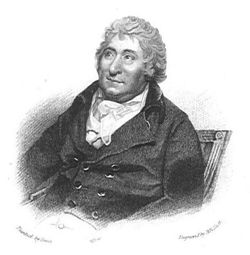Annotation:Warwickshire Lads: Difference between revisions
No edit summary |
No edit summary |
||
| Line 3: | Line 3: | ||
<p><font face="garamond, serif" size="4"> | <p><font face="garamond, serif" size="4"> | ||
'''WARWICKSHIRE LADS''''. English, Air and March (6/8 time). G Major. Standard tuning (fiddle). ABB. A British song air and march from the Revolutionary War period. The song, with music set by English stage singer and composer Charles Dibdin (1745-1814), appeared in David Garrick's celebratory production '''The Jubilee''' (1769), in honor of William Shakespeare. It was published in London by John Johnson and Longman, Lukey and Broderip in '''Overture, Songs, Airs, and Chorusses, In the Jubilee or Shakespear's Garland''' (1770). Garrick's lyric begins: | '''WARWICKSHIRE LADS''''. English, Air and March (6/8 time). G Major. Standard tuning (fiddle). ABB. A British song air and march from the Revolutionary War period. The song, with music set by English stage singer and composer Charles Dibdin (1745-1814), appeared in David Garrick's celebratory production '''The Jubilee''' (1769), in honor of William Shakespeare. It was published in London by John Johnson and Longman, Lukey and Broderip in '''Overture, Songs, Airs, and Chorusses, In the Jubilee or Shakespear's Garland''' (1770). Garrick's lyric begins: | ||
[[File:dibdin.jpg| | [[File:dibdin.jpg|250px|thumb|right|Charles Dibdin]] | ||
<blockquote> | <blockquote> | ||
''Ye Warwickshire lads, and ye lasses,''<br> | ''Ye Warwickshire lads, and ye lasses,''<br> | ||
Revision as of 05:17, 15 December 2015
Back to Warwickshire Lads
WARWICKSHIRE LADS'. English, Air and March (6/8 time). G Major. Standard tuning (fiddle). ABB. A British song air and march from the Revolutionary War period. The song, with music set by English stage singer and composer Charles Dibdin (1745-1814), appeared in David Garrick's celebratory production The Jubilee (1769), in honor of William Shakespeare. It was published in London by John Johnson and Longman, Lukey and Broderip in Overture, Songs, Airs, and Chorusses, In the Jubilee or Shakespear's Garland (1770). Garrick's lyric begins:

Ye Warwickshire lads, and ye lasses,
See what at our Jubilee passes,
Come revel away, rejoice and be glad,
For the lad of all lads, was a Warwickshire lad,
Warwickshire lad,
All be glad,
For the lad of all lads, was a Warwickshire lad.
Be proud of the charms of your county,
Where Nature has lavish'd her bounty,
Where much she has giv'n, and some to be spar'd,
For the bard of all bards, was a Warwickshire bard,
Warwickshire bard,
Never pair'd,
For the bard of all bards, was a Warwickshire bard.
Garrick could be a hard taskmaster, and people who worked with him were often reactive. Dibdin wrote:
As for my own concern in it [i.e. The Jubilee], I was a slave to it for months, I set and reset songs to it till my patience was exhausted, which were received or rejected just as ignorance or caprice prevailed...yet during all this time, to accomodate him [i.e. Garrick], and indeed for the sake of the cause towards which I had, at least, as sincere good wishes as himself, I bore anything. One thing galled him very much. He really had not an idea of how to write for music, and I frequently ventured at hinting alterations, as to measure, for the advantage of what he wrote...Matters went on in this train, till at last I was so palpably insulted that I declared I would not go to Stratford.
The air also was entered into the period music manuscript collections of John Fife (1780, perhaps from Perthshire) and John Molyneaux (1788, from Sherbourne, Nova Scotia). The melody was adopted as the regimental quick march of the Royal Warwickshire regiment.
Despite the English title, Elias Howe catagorizes it with his ‘Scotch Airs’.
Source for notated version:
Printed sources: Howe (1000 Jigs and Reels), c. 1867; p. 143.
Recorded sources:
See also listing at:
Hear the song on youtube.com [1]
